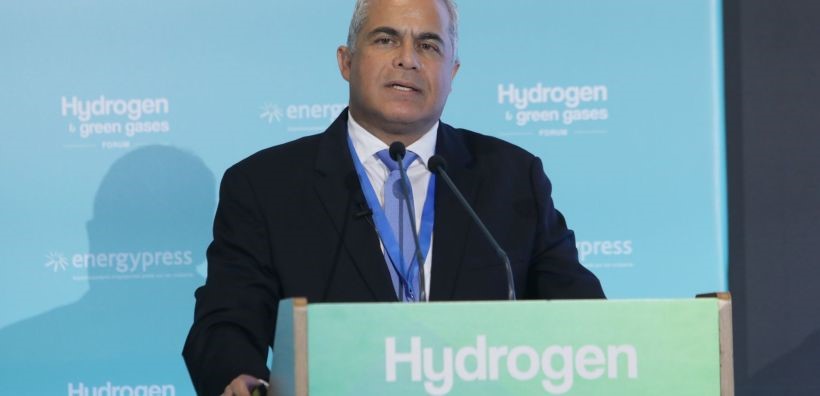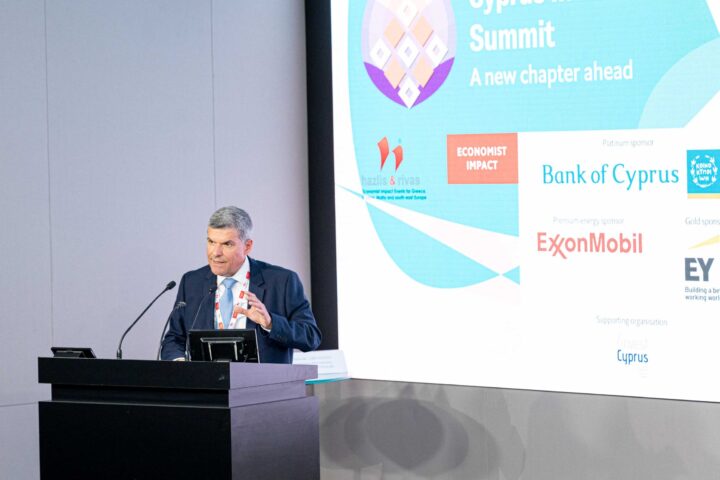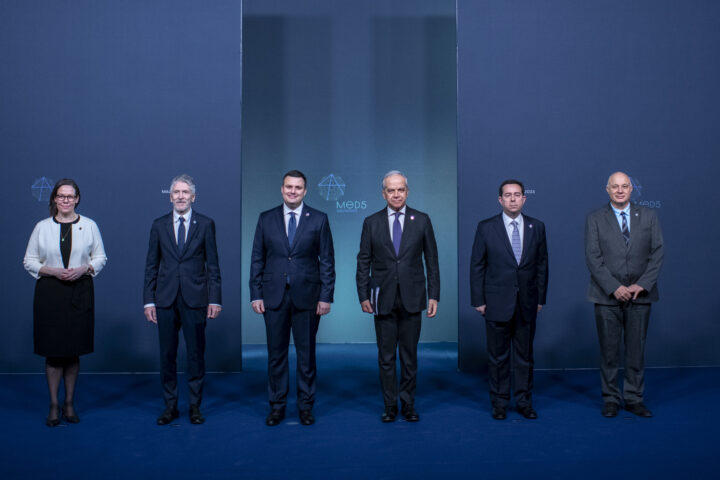Until the completion of the energy transition, natural gas reserves in the Mediterranean can serve as a transitional solution to the EU’s dependency on Russian natural gas, said Andreas Poulikkas, head of the Cyprus Energy Regulatory Authority (CERA).
He spoke at the Hydrogen & Green Gases Forum held last week in Athens, where he was the keynote speaker in the “European Policies for the Promotion of Hydrogen and Renewable Gases” session.
Dr Poulikkas addressed the challenges of using more hydrogen in energy systems and how Cyprus could become climate-neutral.
He told the forum that countries in the southeastern Mediterranean, including Cyprus, can take the lead in the hydrogen economy, become climate-neutral, and simultaneously become exporting countries of sustainable energy to the EU.
Hydrogen is an energy carrier that offers the opportunity to address energy supply issues, the reliability of renewable energy sources, climate change, and atmospheric pollution countries face.
He said the attractiveness of hydrogen lies in its ability to replace fossil fuels in heating, cooling, transportation, and electricity generation, with its only emission being water vapour.
“Two factors hinder the use of hydrogen (a) equipment durability (resolved) and (b) the cost of producing green hydrogen (remains an obstacle).
“Green hydrogen as a fuel is now poised to become a reality as the pace of research, development and pilot projects continues to accelerate.
“But in terms of the production costs, especially of green hydrogen, a lot of work is needed since the production costs of green hydrogen to be competitive must be reduced from the current $5 per kilo to around $1.5.”
On how Cyprus could become climate-neutral, Poulikkas underlined the need for regional cooperation since the energy resources of the southeastern Mediterranean present a combination of natural gas deposits and renewable energy sources.
“This combination constitutes the region’s comparative advantage,” he said.
“Until the completion of the energy transition, natural gas reserves in the southeastern Mediterranean region can serve as a transitional solution to the EU’s dependency on Russian natural gas.”










